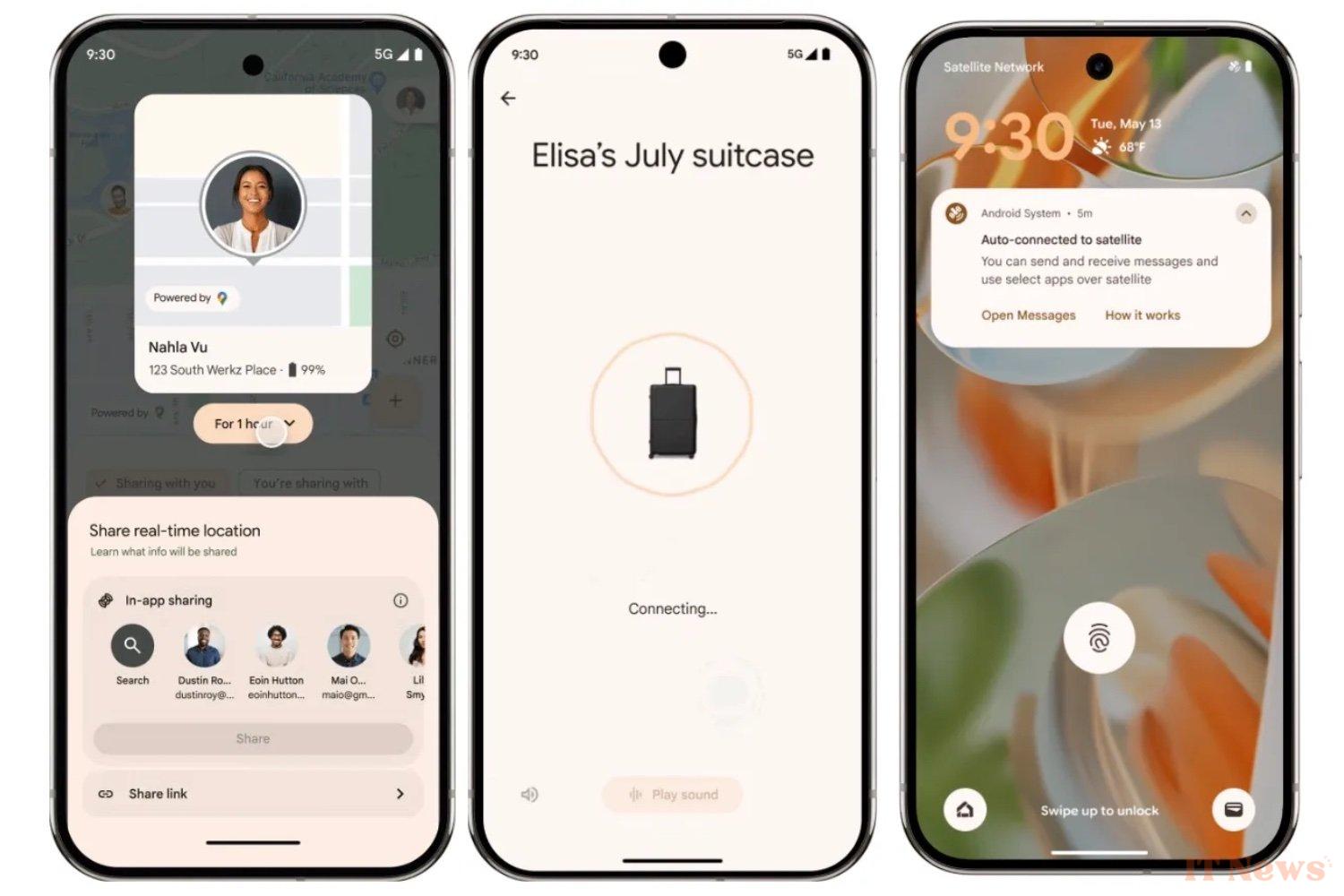Google's "Find My Device" feature is getting a name change, but that's not all. Now called "Find Hub," this solution is gaining in efficiency and compatibility. Presented at the Android Show, a week before the Google I/O conference, this development aims to expand the use of the location service to new scenarios—well beyond just a lost smartphone.
A new name and a salvo of new features
One of the main advancements concerns support for ultra-wideband (UWB) technology. Already well-known to Apple AirTag users, this technology allows for precise location of an object, to within a few centimeters. The first product to benefit from this integration will be Motorola's Moto Tag, available since last year. Other accessories are expected to follow.
Furthermore, Google is partnering with new brands to offer trackers integrated directly into everyday objects. It will be easier to find a lost July or Mokobara suitcase, or even skis, thanks to integration with the Peak brand. Bluetooth beacons designed for family use, especially for children, will also be available, with personalized versions in Disney colors offered by Pixbee.
Like Apple, Google is also banking on airline partnerships to attract travelers. Five airlines are already in line to integrate Find Hub into their baggage tracking process: Aer Lingus, British Airways, Cathay Pacific, Iberia, and Singapore Airlines. In concrete terms, this will make it possible to share the location of a tracker placed in a suitcase with the airline, to facilitate its retrieval in the event of loss.
Another new feature planned for later this year: compatibility with satellite location services. Google promises that this feature will allow you to "stay connected with friends and family, even without a cellular network." No technical details have been provided yet, but we can imagine a functioning similar to that of the satellite emergency location on certain iPhones.
Finally, Google continues to enrich the community aspect of its service. Since last year, Find Hub has been able to rely on a participatory location network, similar to Apple's, using Bluetooth signals detected by other Android devices. This network supports third-party trackers, such as those from Chipolo or Pebblebee, which are now gaining visibility with the evolution of the tool.
With Find Hub, Google is expanding its response to the Apple ecosystem. And for once, the new name has a good chance of not getting lost!



0 Comments